Cardboard Prices Rise Amid Global Market Shifts: Q2 2025 Update
16-Jul-2025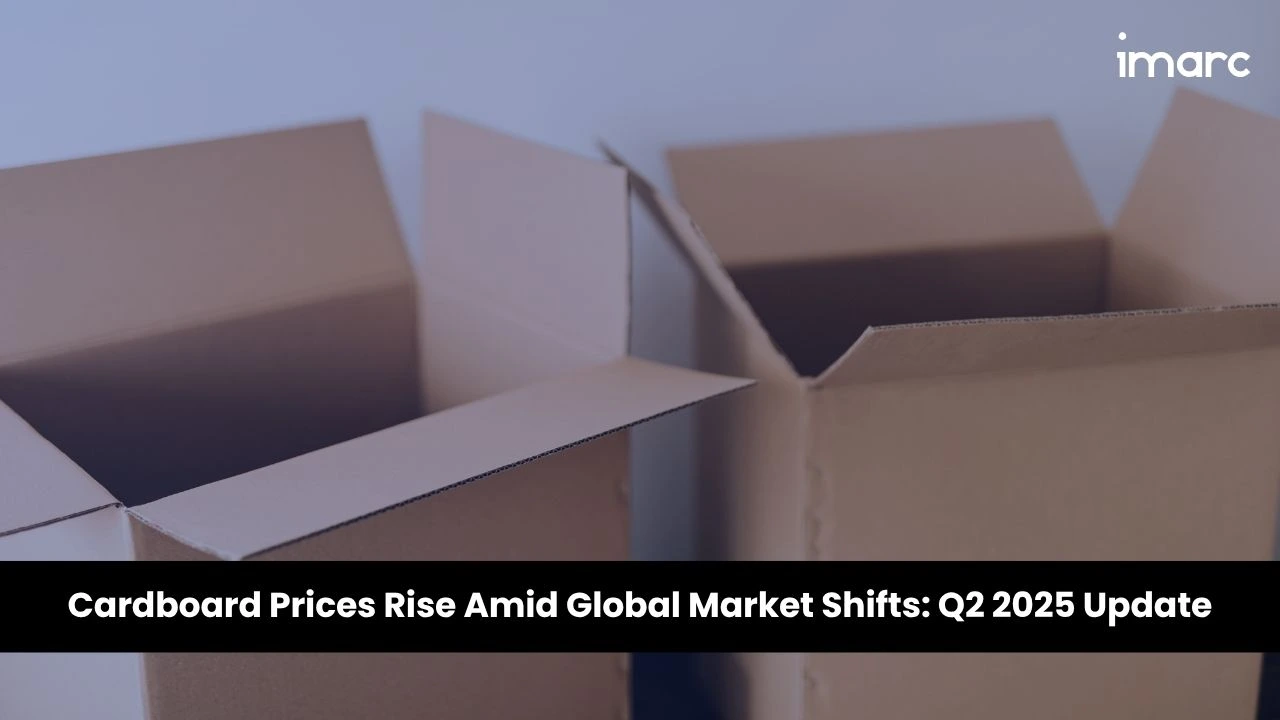
The cardboard industry witnessed dynamic pricing shifts, driven by robust demand, cost pressures, and regional market developments. IMARC Group’s latest report, Cardboard Price Trend, Index and Forecast Data Report 2025 Edition, provides updated insights for Q2 2025. The report highlights the ongoing growth of the e-commerce sector, sustainability-led packaging reforms, and heightened geopolitical volatility. Key markets shaping this trend include North America, Asia Pacific, and Europe, each reflecting unique market conditions, regulatory influences, and supply chain developments.
Q2 2025 Cardboard Prices:
- USA: USD 555.57/MT
- China: USD 245.48/MT
- Germany: USD 233.50/MT
- Brazil: USD 322.2/MT
- Canada: USD 420.12/MT
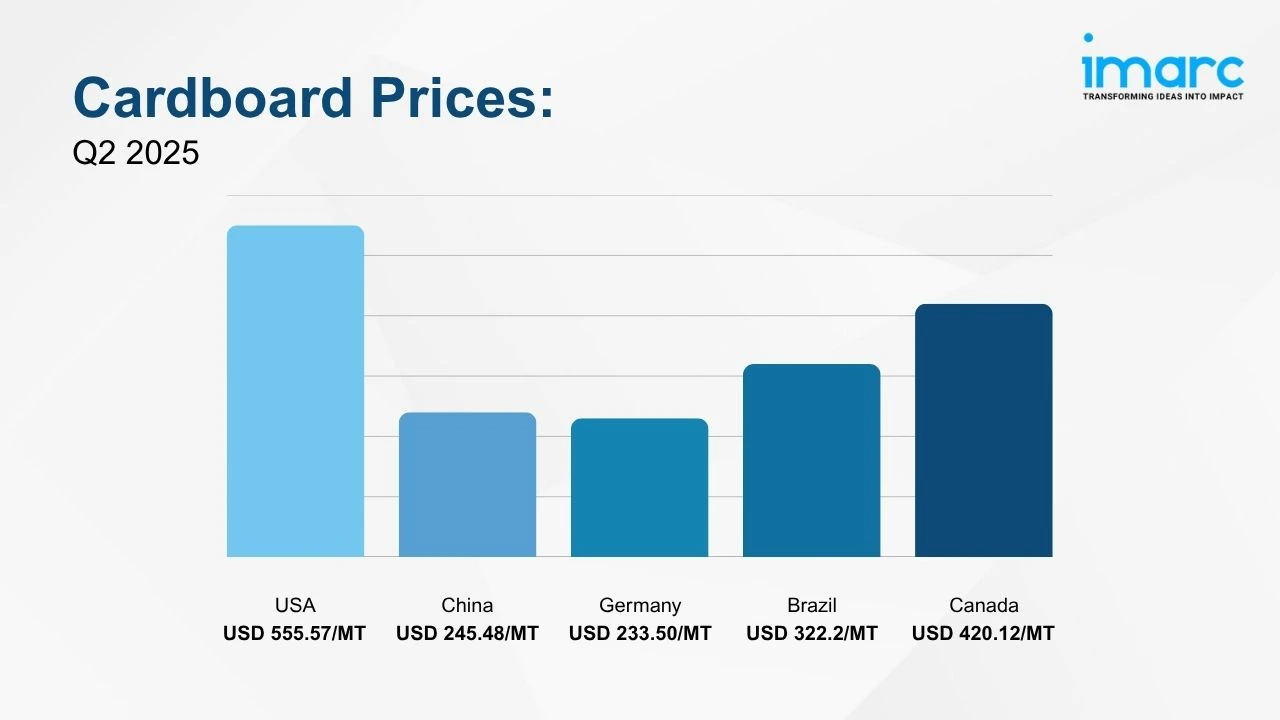
To access real-time prices Request Sample
The present cardboard pricing trend reflects its growing importance in circular packaging systems, with persistent demand from retail and industrial sectors, along with rising input costs and sustainability-driven market transitions.
Key Regional Price Trends and Market Drivers:
United States
Cardboard prices in the U.S. reached USD 555.57/MT in the Q2 of 2025, driven by surging demand from the e-commerce sector, escalating raw material costs, and import tariffs. The trend reflects North America’s overall market trajectory, which is shaped by increasing environmental regulations and shifting packaging preferences.
China
In China, prices stood at USD 245.48/MT in June 2025. The market remained relatively stable due to enhanced domestic recycling efforts and infrastructure investments. Additionally, seasonal demand patterns and supportive government policies, including subsidies, contributed to a controlled pricing environment despite growing consumption.
Germany
Germany prices stood at USD 233.50/MT in Q2 2025, influenced by fluctuations in wood pulp costs and surging energy expenses. Some producers have introduced temporary surcharges to cope with rising operational costs, contributing to the overall European price volatility.
Brazil
Cardboard prices in Brazil reached USD 322.2/MT in Q2 2025, reflecting growing domestic demand and elevated energy costs. The Latin American market has seen steady growth amid higher export volumes and rising packaging needs across food and industrial sectors.
Canada
In Canada, prices touched USD 420.12/MT in Q2 2025, amid geopolitical tensions and an uptick in the Industrial Product Price Index (IPPI) for pulp and paper. Market conditions remain volatile, with supply challenges and macroeconomic uncertainty affecting pricing dynamics.
Cardboard Industry Overview:
The global cardboard market reached a value of USD 430.23 Billion in 2024 and is projected to grow to USD 652.26 Billion by 2033, expanding at a CAGR of 4.90% during 2025–2033. This steady growth trajectory is underpinned by strong momentum in e-commerce, where corrugated cardboard boxes dominate shipping and fulfilment operations, and by accelerating regulatory shifts that Favor recyclable, fiber-based packaging over single-use plastics.
In addition to e-commerce and sustainability mandates, several additional factors are sharpening market growth. Rising industrial output in emerging economies is increasing the demand for durable transit packaging. Furthermore, infrastructure development and export-oriented manufacturing are widening the usage of heavy-duty corrugated solutions. Also, brand owners’ investment in smart, track-and-trace packaging is elevating the value proposition of engineered cardboard. Collectively, these drivers are expected to keep pricing firm and consumption robust through the forecast period.
Recent Market Trends and Industry Analysis:
Cardboard is emerging as a cornerstone of sustainable packaging solutions, driven by escalating demand from e-commerce, retail, and logistics sectors. Its recyclability, biodegradability, and cost-effectiveness make it a preferred alternative to plastic, especially amid tightening global regulations on single-use materials. Advances in packaging design and printing technologies are further enhancing cardboard’s utility across consumer-facing and industrial applications.
Beyond traditional packaging, engineered cardboard products are gaining traction in construction, interior design, and smart logistics due to their lightweight, durable, and customizable properties. From honeycomb panels to RFID-enabled packaging, cardboard supports innovations that align with circular economy goals. As businesses prioritize environmental responsibility and regulatory compliance, the growing demand for cardboard underscores its integral role in promoting low-impact, high-performance material solutions across diverse industries.
Strategic Forecasting and Analysis:
IMARC’s report incorporates forecasting models that project near-term price movements based on evolving trade policies, raw material supply, and technological trends. These tools enable businesses to mitigate risk, enhance sourcing strategies, and support long-term planning.
Key Features of the Report:
- Price Charts and Historical Data
- FOB and CIF Spot Pricing
- Regional Demand-Supply Assessments
- Port-Level Price Analysis
- Sector-Specific Demand and Supply Insights

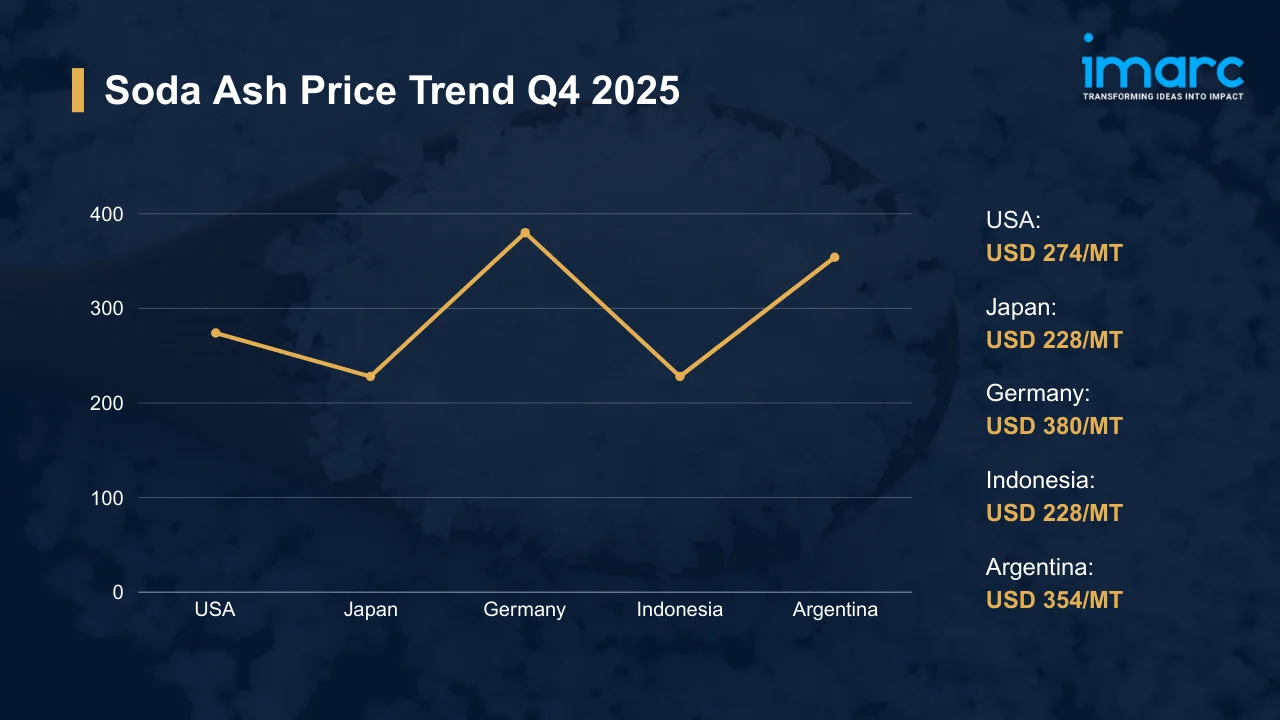
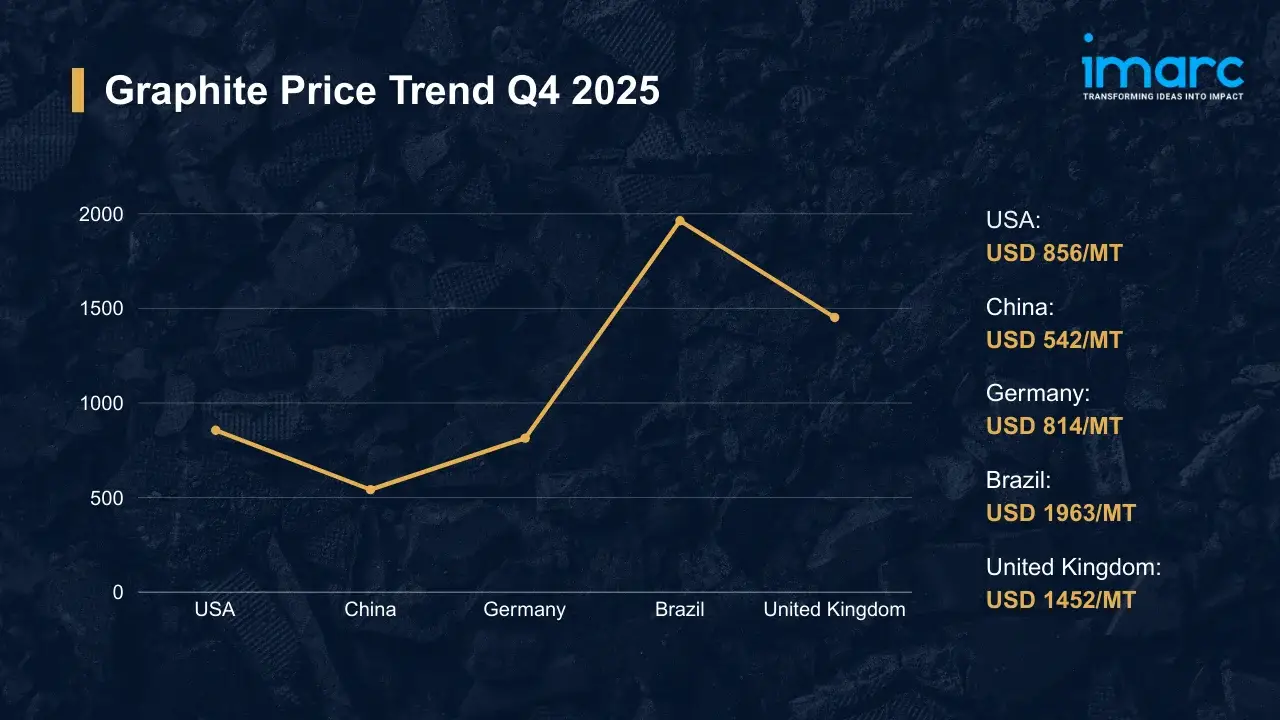
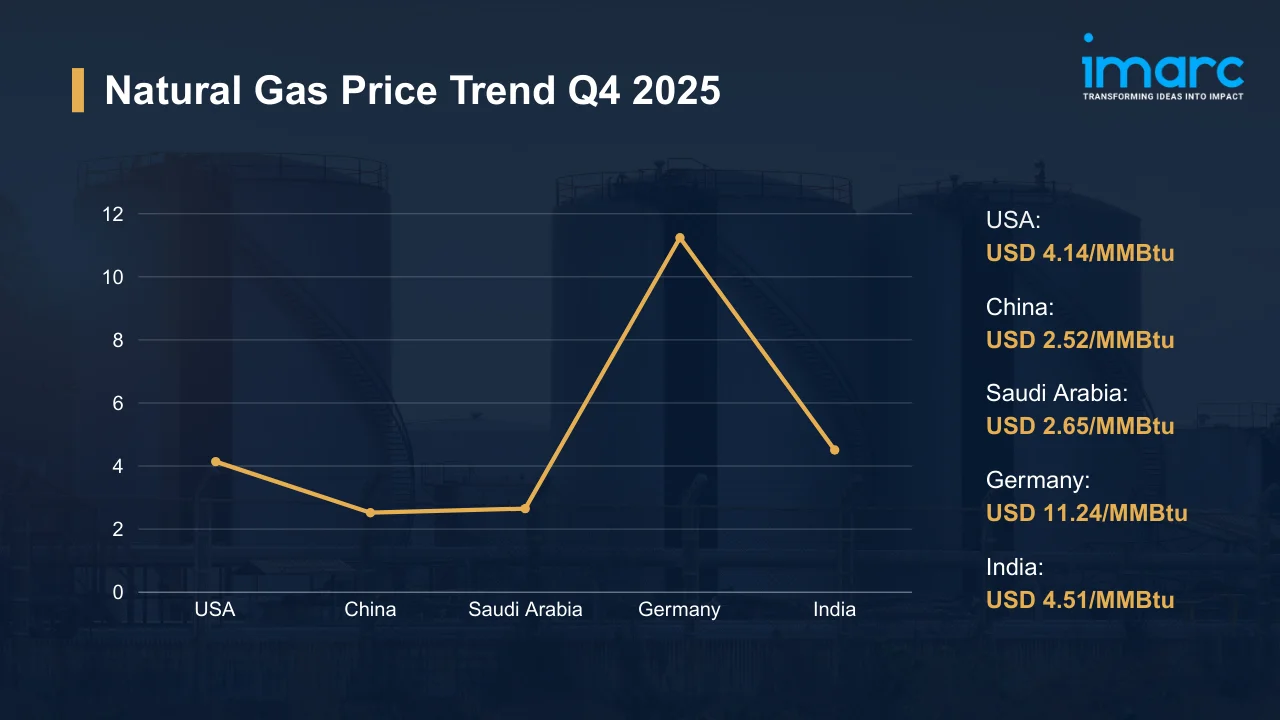




.webp)




.webp)












